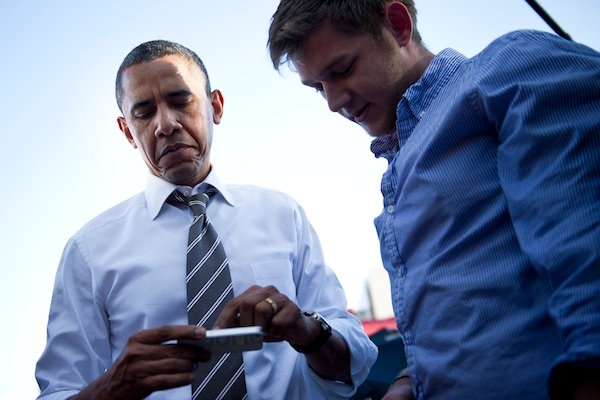Four years ago, on the weekend before the 2008 presidential election, political commentator John McLaughlin asked the four panellists on his show The McLaughlin Group to predict the winner. As Nate Silver says in his excellent book The Signal and the Noise, ‘That one ought not to have required very much thought.’ The polls indicated that Barack Obama was the strong favourite to beat John McCain. For McCain to win, the polls would’ve had to be heavily biased towards Obama — something for which there was no evidence. But of the four panellists, only one — Eleanor Clift — predicted what was clearly the most likely outcome. Monica Crowley predicted a narrow win for McCain, while Clarence Page declared the election ‘too close to call’ and Pat Buchanan simply stated that ‘the undecideds will decide this weekend’.
Four years later, the McLaughlin Group doesn’t seem to have learnt its lesson. Asked on Friday who will win this time, Pat Buchanan said ‘The heart says Romney-Ryan and the head says too close to call’ before predicting that Romney would win North Carolina, Florida, Virginia, Colorado and Ohio — enough for 275 electoral votes. Host McLaughlin simply proclaimed ‘Romney-Ryan will win with 281 electoral votes’. Mortimer Zuckerman and Clarence Page both chose Obama, but emphasised that they thought it would be very close, with Ohio deciding it. The most pro-Obama prediction — which again came from Eleanor Clift — was for the President to win with 303 electoral votes. In fact, even Clift’s estimate is a slightly more favourable result for Mitt Romney than the polls suggest: Silver’s Fivethirtyeight forecast shows that Obama is (slightly) more likely than not to do better than that. Obama leads in states totalling 303 electoral votes, while he trails by just 0.2 points in Florida, which is worth another 29.
Certainly, the race is closer this time than it was in 2008, when Obama won by more than seven percentage points and with 365 electoral votes. But it is by no means a ‘tossup’, ‘deadlocked’, ‘too close to call’ or ‘neck and neck’. Of the 13 national polls published yesterday, nine showed Obama leading and four showed a tie — none showed Romney leading. And even if the popular vote does end up tied, Obama would still be the heavy favourite to win re-election, as he leads by more than three points in enough states to give him 277 electoral votes. As in 2008, the only way Romney will win tomorrow night is if the polls are statistically biased towards Obama. That very thesis has been adopted by many Republicans — hence the creation of the utterly mad unskewedpolls.com — but there is no good reason to believe that it is any more likely than the polls being biased towards Romney, and hence actually underestimating Obama’s strength.
And yet the impression you get from most media coverage is similar to the one you get from the McLaughlin Group: the race is finely balanced, with Obama perhaps the slight favourite. We also hear a lot about the ‘exciting’ outcomes a close result might bring: a split between the electoral college and the popular vote (as happened in 2000), or — better yet — an electoral college tie. In reality, the first is very unlikely — there’s about a 1-in-13 chance of such a split — and the second is extremely unlikely — about a 1-in-400 chance. But you wouldn’t think so based on the amount of airtime and column inches devoted to them recently.
Similarly, states like Pennsylvania and Michigan are made to sound much closer than they are. Outlier polls are given more attention for precisely the reason that they are unlikely to be accurate: they differ drastically from the bulk of the evidence. So a poll showing the candidates tied in Pennsylvania is highlighted while the rest — which show solid leads for Obama — are ignored. The same goes for the Michigan poll showing Romney slightly ahead, against six others in the past week that have Obama leading by five to eight points.
It is, of course, in the media’s interest to exaggerate how close — and how exciting — the election is. It’s also in the interests of both campaigns: Team Romney doesn’t want people to think it’s losing; Team Obama doesn’t want its supporters to think the election is in the bag and not bother voting. Individual pundits who do understand that Obama is the favourite might predict victory for Romney because of the accolades they’ll receive in the unlikely event that it happens. And as the McLaughlin Group demonstrates, they probably won’t suffer too much if it doesn’t.






Comments